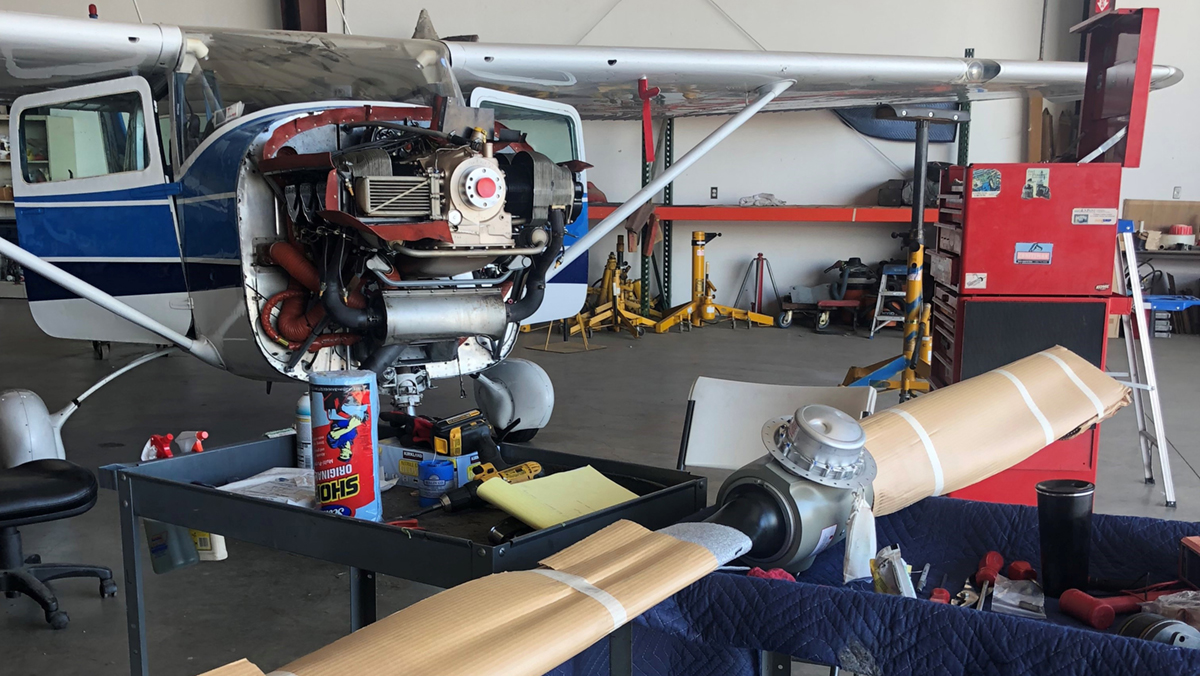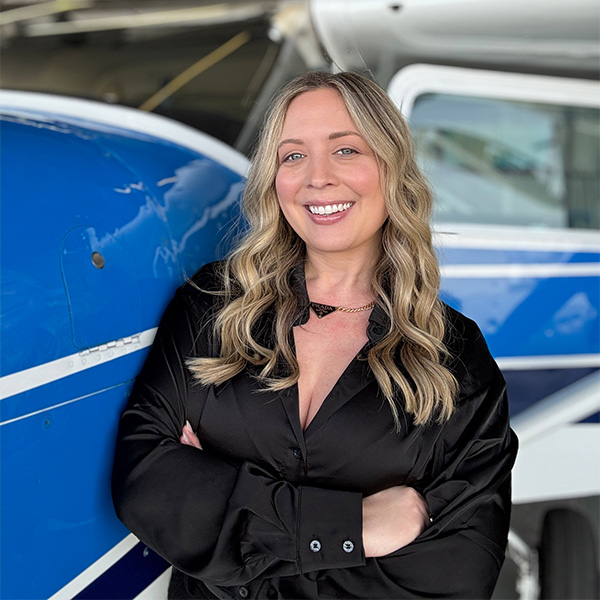Supply chain woes continue
Aviation companies work to alleviate wait times
Aviation manufacturers and maintenance companies around the globe are still feeling the effects of a volatile supply chain brought on by the coronavirus pandemic.

Demand in private aviation is as strong as ever, despite lengthy delays brought on by supply chain challenges, and many companies are finding creative ways to keep customers in the air.
“Of the more than $634 million in first-quarter 2022 sales, 44.2% came from the retrofit market (avionics equipment installed after original production), while forward-fit sales (avionics equipment installed by airframe manufacturers during original production) amounted to 55.8% of first-quarter sales,” according to the report.
Geoff Hill, AEA director of communications, explained, “Despite the international supply chain challenges, avionics [original equipment manufacturers] are continuously working to address parts shortages and are proactively communicating with repair stations and maintenance organizations around the world to help navigate through increased lead times for some products. Because consumer demand for avionics has remained strong throughout the pandemic, shops are facing backlogged schedules that have served as a buffer on the OEM inventory drawdown.”
Garmin’s avionics outlook has changed over the past five months as the company works hard to meet demand.
“The global supply chain continues to face challenges, however, product redesign and some sourcing improvements have allowed impacted products to continue delivering at increasing rates in many cases,” said Jim Alpiser, Garmin director of aviation aftermarket sales. “Most product lead times are less than the time needed for an installer to schedule an aircraft for installation. We are still diligently working to source parts through all available means, with some positive results, and we continue to assess alternative parts and/or product redesigns to mitigate delivery delays to our customers and dealers.”
Andre Castro, General Aviation Manufacturers Association director of communications, said, “The general aviation industry faced some stiff headwinds during the pandemic, including ongoing supply chain and workforce challenges. Despite the constraints imposed by shortages of parts and people, our manufacturers and maintenance providers are working hard to strategically manage these challenges in order to meet the growing demand for aircraft. As we look to the future, it will be important that we grow and strengthen our workforce and continue working across our supply chain to improve its resiliency and support industry growth and opportunities.”
Smaller GA businesses are struggling with supply delays as well.
Savvy Aviation, a GA maintenance company in Sheridan, Wyoming, is feeling the squeeze as parts and engine backlogs continue to grow.
Mike Busch of Savvy Aviation said, “We're running into severe supply chain problems, especially with engine rebuilds/overhauls and engine parts, but also with other things. For example, there are a bunch of Cirrus SR20s and SR22s on the ground because the controllers for their AmSafe restraints (seat belts with air bags) have reached their life limit and replacement controllers are backlogged for many months."
“We have been encouraging our clients with over-TBO engines to continue flying them because if they send their engines in for overhaul now, it will likely be 6 to 9 months before they can fly again. Ordering a factory rebuilt exchange engine isn't any better—Lycoming is backlogged on those for at least 8 months.”
“Major delivery services are often not meeting delivery expectations,” said Walt Gyger, Tradewinds Aviation general manager. “Not only are these parts not regularly available, but they are also not arriving on time. “
In an email, Andrea Bertagnolli, Continental Aerospace Technologies marketing director said, "Continental continues to face supply chain challenges for select product lines. When supply chain issues began, we quickly identified the need to get ahead of these critical challenges. As a result, Continental created a dedicated team that remains focused on overcoming obstacles within our power. The members of this team are constantly communicating with our partners so that we can come up with creative and viable solutions. As for staffing needs, we are still searching to find the ideal candidates to join our team. Continental is hiring in all business areas, including Production, Warehousing, Engineering, Finance, Operations, Product Support, Flight Line Attendants, and more. We are genuinely looking to have the right people in the right seats as we work to fulfill our mission."
An article from Forbes on the current state of the private aviation industry describes demand for private jets as showing no signs of slowing, with manufacturers struggling to meet demand. “During a press conference, Dassault Aviation CEO Èric Trappier says delaying certification for its Falcon 6X until 2023 is in large part due to supply chain issues. In a briefing from Gulfstream Aerospace, also owned by General Dynamics, its President Mark Burns said new FAA procedures to approve software for airplanes in the wake of the Boeing Max crashes are taking more time than in the past.”
Michael Amalfitano, CEO of Embraer Executive Jets said Embraer production is being impacted by many of the same issues impacting other industries, like the computer chip shortage. Supply chain delays aren’t stopping new customers, however. Amalfitano said, “Nearly half of its Phenom entry-level jets were bought by first-time buyers last year. Many were introduced to the type by the numerous fractional and jet card providers that feature them in their fleets.”
Kenny Dichter, Chairman and CEO of Wheels Up Experience, urged the industry to “expand the workforce by making itself attractive to a broader array of talent, targeting women and minorities.”
Lycoming Engines did not respond to questions about any parts or labor shortages they might be facing.



